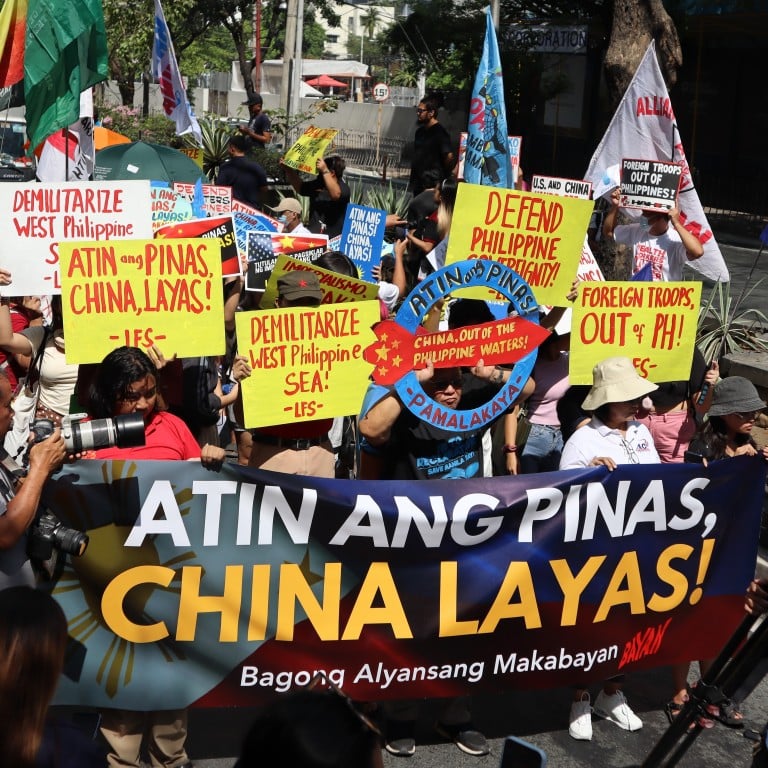
‘The Philippines is ours, China out’: Filipino activists slam Sino-US rivalry in country’s maritime zone
- Activists slam President Marcos Jnr for allowing the US to use Philippine military facilities, and call for a ‘demilitarised zone’ for local fishermen to fish peacefully
- The Philippines needs to have an independent foreign policy and not resolve conflict ‘through warships’, activists add
Hundreds of Filipino activists protested against China and the United States on Tuesday, condemning both countries for waging their rivalry within the Philippines’ maritime territory in the South China Sea.
The protesters, who gathered near the Chinese consulate in Metro Manila, chanted “the Philippines is ours, China out” as they also slammed the government of President Ferdinand Marcos Jnr for giving the US the right to use Philippine military facilities.
They urged Marcos Jnr to turn the West Philippine Sea – Manila’s term for the waters of the South China Sea located within and outside the Philippines’ exclusive economic zone (EEZ) it considers its maritime territory – into a “demilitarised zone” where local fishermen could fish peacefully.
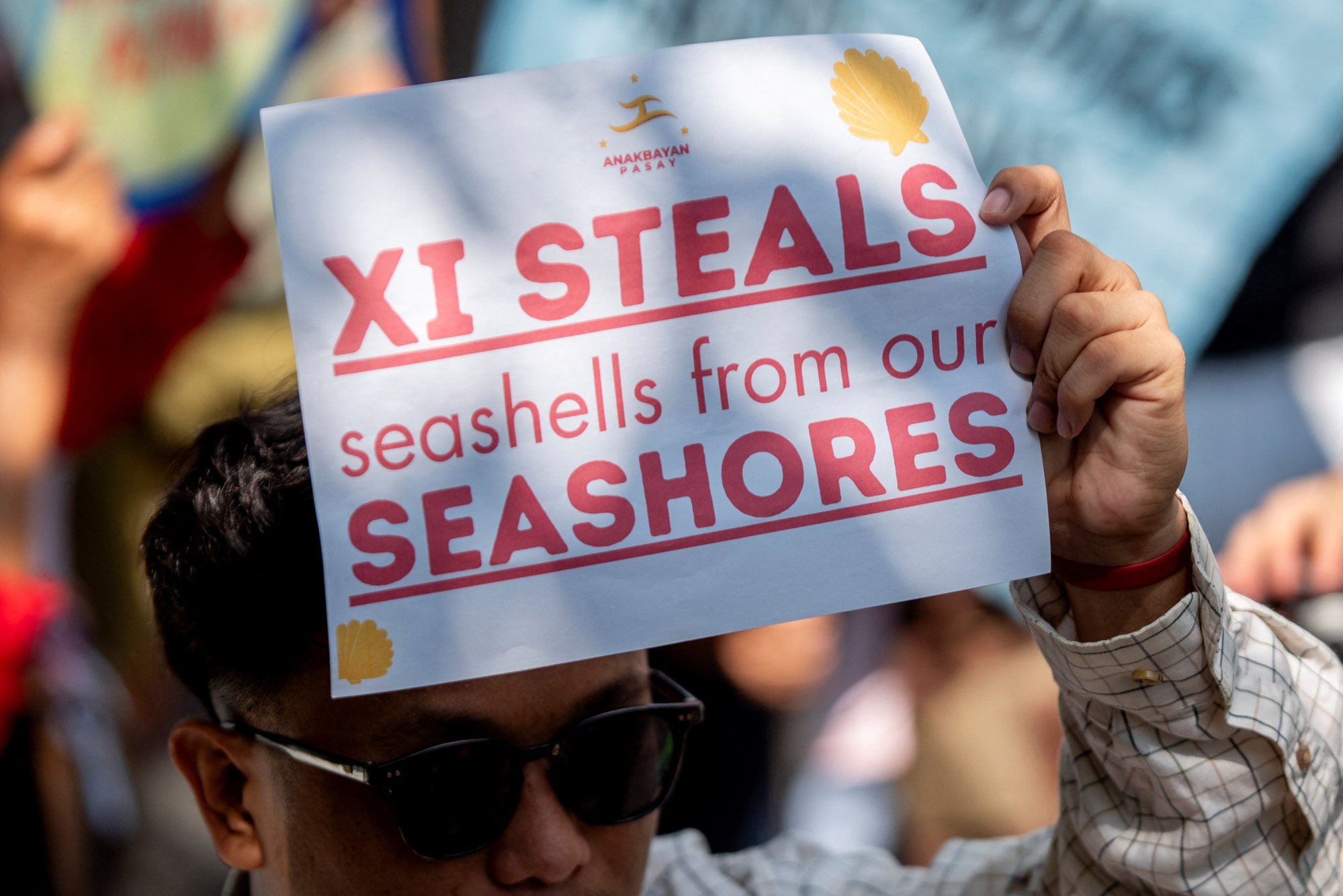
Tuesday’s rally, which took place in Metro Manila’s financial district of Makati City, was held to coincide with the Day of Valour, which commemorates the day when the provinces of Bataan and Corregidor fell to Japanese invaders 82 years ago.
The protest was organised by the Bagong Alyansang Makabayan (New Patriotic Alliance), an alliance of left-wing Philippine groups.
Policemen with riot shields, truncheons and walkie-talkies parked vehicles on one lane of the avenue to prevent activists from gathering in front of the Chinese consulate and tried to turn them away, saying they lacked a permit to rally.
One young activist retorted, “The Chinese are already driving Filipinos away in the West Philippine Sea. Are you also driving us out of here?”
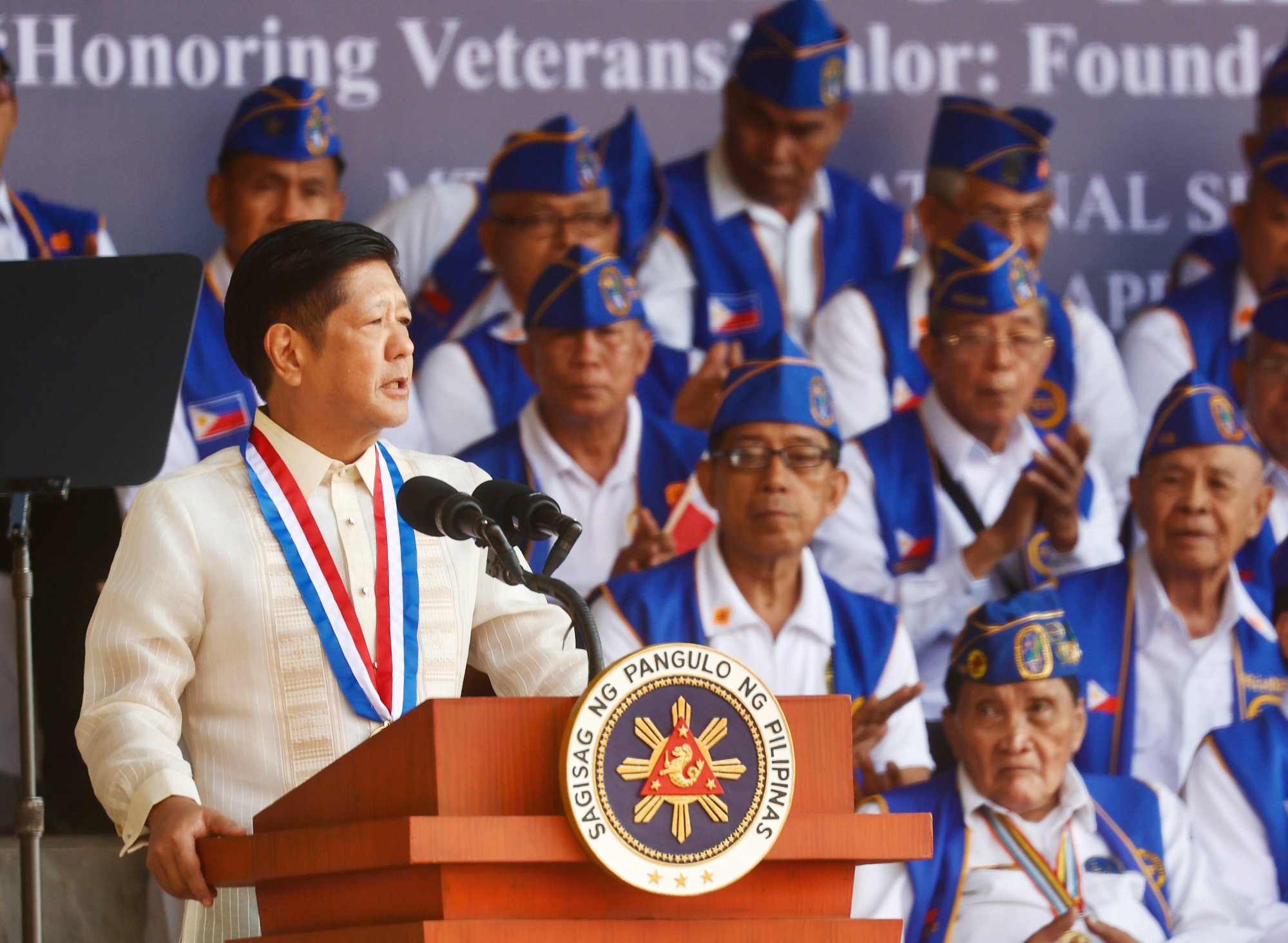
Meanwhile, at an event west of Manila commemorating the Day of Valour, Marcos Jnr warned that “foul forces [are] endangering the hard-fought gains we made for our country” and urged Filipinos to emulate those who fought in Bataan and Corregidor so that “like them, we may emerge triumphant in the trials of our time”.
Eight out of 10 Filipinos favour Manila working closely with Washington to serve as a deterrence to China’s growing aggression in the South China Sea, according to the results of a survey done by private pollster Pulse Asia and released on January 16.
On Sunday, warships from the US, Philippines, Japan and Australia staged a show of force within Manila’s 200-mile maritime EEZ, which China mostly claims as being within its territory under its nine-dash line.
On the same day, the People’s Liberation Army’s Southern Theatre Command held a joint naval and air combat patrol, also in the South China Sea.
Both sides pronounced their war exercises a resounding success.
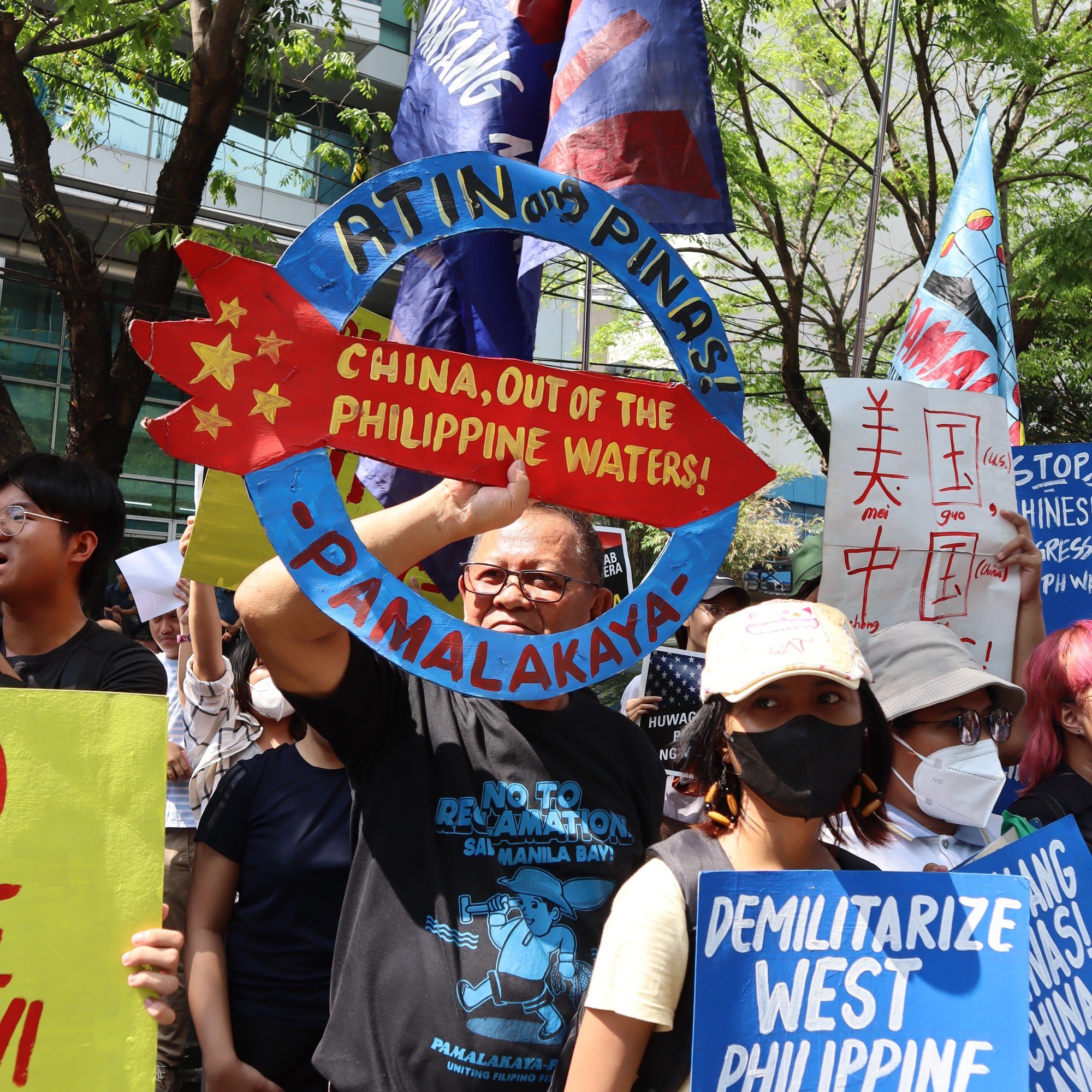
Fernando Hicap, president of Pamalakayang Pilipinas (National Federation of Small Fisherfolk Organisation in the Philippines), told This Week in Asia during Tuesday’s rally that the rapid turn of events was “very concerning”.
Hicap said his organisation of 100,000 members “condemns the Marcos administration’s dependence on the help of the US, Japan and other countries to resolve this [South China Sea conflict] through warships”.
“We don’t support this method of resolution through war.”
When asked whether the Philippines could defend itself without external help, Hicap replied, “Yes, because China is becoming isolated in the international community. The solution is diplomacy, not war.”
Hicap said China’s “illegal occupation in the West Philippine Sea” violated the United Nations Convention on the Law of the Sea and a 2016 international arbitral decision that ruled China’s claims have no legal basis.
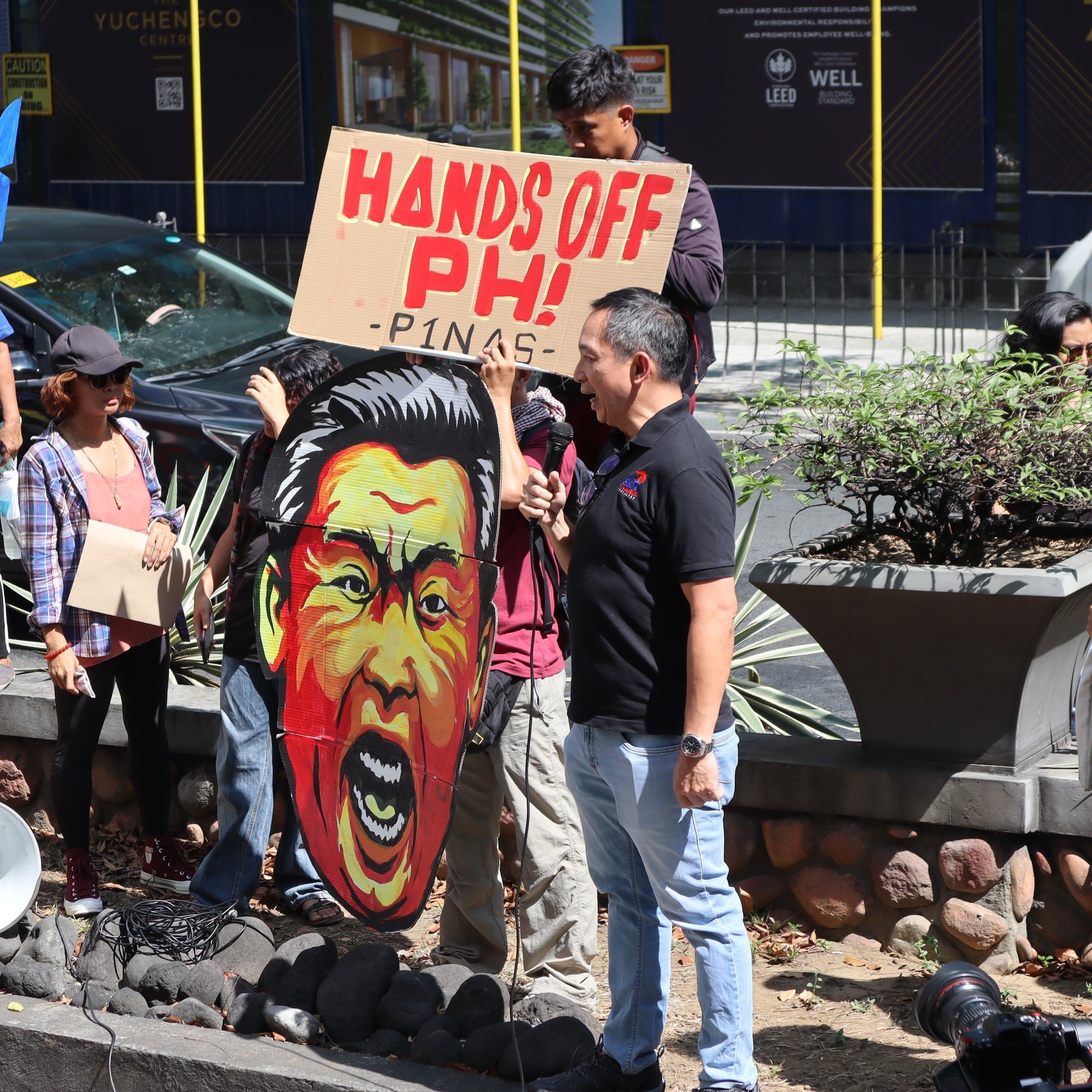
Antonio Tinio, a former congressman with the party-list group Alliance of Concerned Teachers (ACT), told This Week in Asia that the country needed “an independent foreign policy”, instead of one that would only exploit the Philippines.
“We need an independent foreign policy that will fight China but would not allow the US or Japan to exploit us for their own agendas,” said Tinio, also a spokesman for the newly formed movement P1nas (Filipinos United for Sovereignty).
“We should urge our friends abroad to support us, but it is another thing to allow the US to base in our territory and prepare for a war that is not our national interest.”
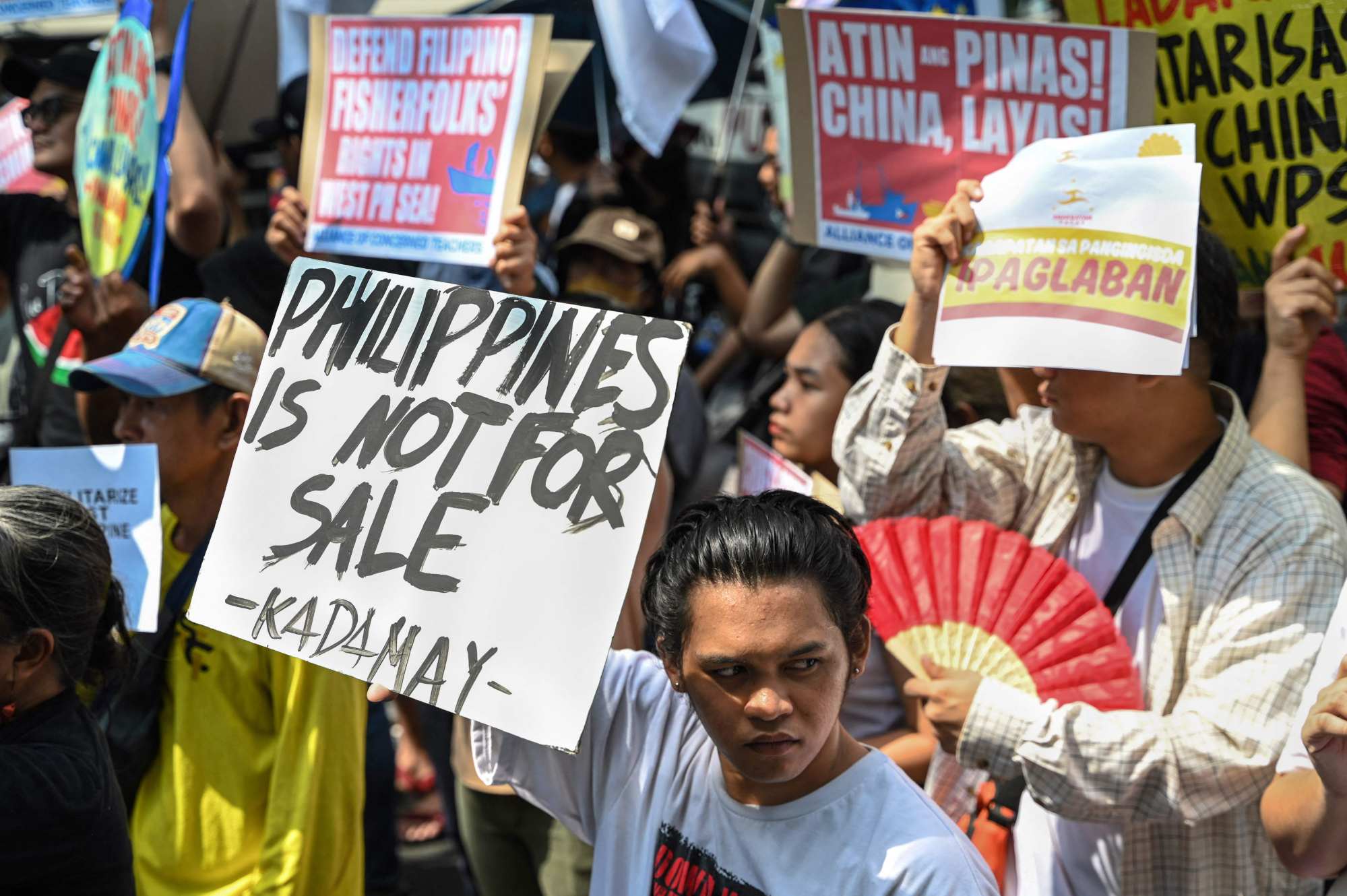
Tinio lamented that the people of Batanes, the country’s northernmost province, would be “put in harm’s way” should conflict break out between the US and China over Taiwan. The Philippine military is building a base to share with US soldiers in Batanes, which is located less than 200km (124 miles) from Taiwan.
The government should emulate Vietnam, Malaysia and Indonesia, which maintained ties with other countries including the US but did not allow Washington to put up facilities and locate their troops on their soil, Tinio said.
“They do not allow the US to use their country to commit any aggression in order to pursue their own interests,” he said.

